Emily Watson on her new TV drama, Chernobyl
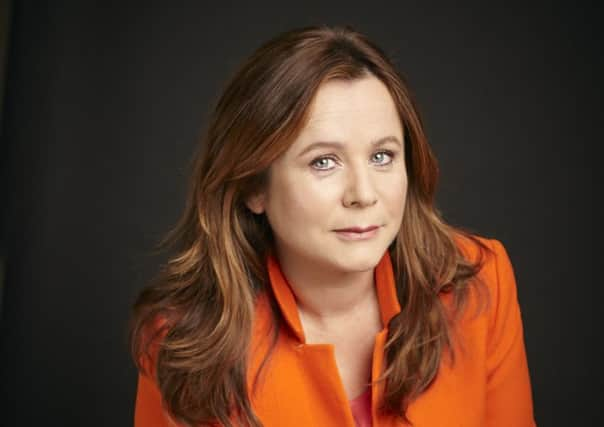

Emily Watson is laughing over the possibility of appearing in a romcom or musical.
“I’d LOVE to! LOVE to,” she says. “I couldn’t do a musical because I can’t sing, but a romcom, yeah. Most surely.”
Advertisement
Hide AdIt’s come up by way of light relief as we’ve just spent half an hour talking about the serious roles and issues that Watson has brought to life in her 30 year career, playing complex characters in extreme and sometimes hard-to-stomach situations. And while the 52-year-old actor is a thoughtful and get-to-grips with reality grown-up, in conversation there’s a lighter, cut-loose side too. She laughs a lot when she’s not giving serious consideration to weightier issues, and happily uses words like ‘distracted’ and ‘muddled’ about herself as she juggles interviews about her latest project, Chernobyl, with children on school holiday.
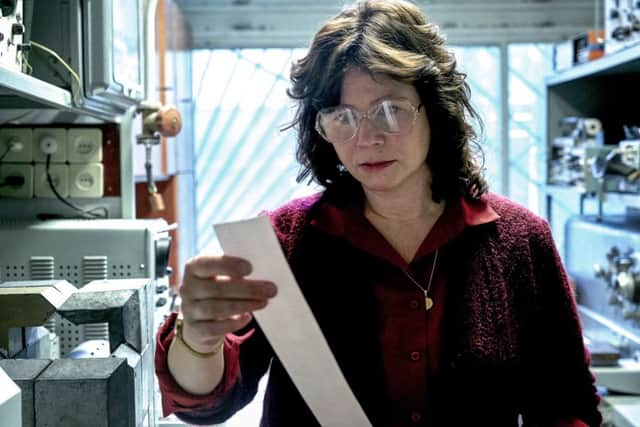

The first co-production by Sky and HBO, Chernobyl is the story of the 1986 nuclear disaster in northern Soviet Ukraine, and compelling viewing. A five part miniseries that starts on Tuesday, it uncovers the causes and effects, and highlights failings and fearlessness, cover ups and conspiracies, as well as the human stories of those who risked, and lost, their lives during the disaster and its aftermath.
Given her track record of tackling difficult topics and extreme roles, we shouldn’t be surprised that Watson’s a go-to for a lead, alongside Jared Harris (The Crown), Stellan Skarsgård (Good Will Hunting, Breaking the Waves), and Jessie Buckley (Wild Rose).
“Yes, I guess that’s true,” she laughs. “I often do those kind of things. It’s just people think you can hack it, so they ask you, I guess.”
‘Those kind of things’ includes her film debut, Lars von Trier’s multi-award-winning and controversial Breaking the Waves, for which she was Oscar nominated, Hilary and Jackie, the story of genius cellist Jacqueline du Pré, which won her a BIFA award for best actress, and ITV drama Appropriate Adult, for which she picked up a best actress Bafta for her portrayal of the civilian volunteer present at the police interviews with murderer Fred West.
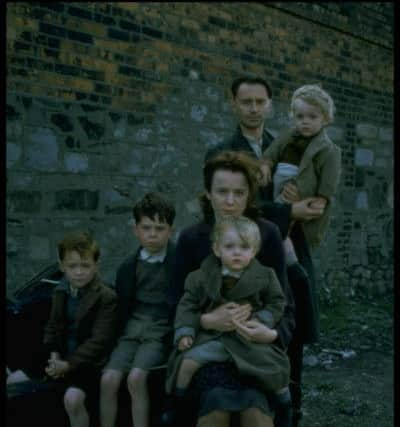

In Chernobyl Watson plays Ulana Khomyuk, a Soviet nuclear physicist determined to take action as the disaster unfolds and make sure it never happens again. In the face of a cover-up, she risks her life and freedom fighting for the truth to be told, and justice to be done.
Advertisement
Hide AdDirected by Johan Renck (Breaking Bad) the heavy-hitting first episode covers immediate events around the accident, the efforts to contain it and the realisation of the scale of the disaster. Episode two sees the introduction of Watson and the story takes off with the race to prevent further disaster and uncover the truth.
“It’s an incredible 360 degree, three dimensional look at the subject, politically, physically, scientifically, spiritually and emotionally,” she says, “and there’s another level about people on the ground. It has a real Hollywood thriller feel. It’s a race against time.
Advertisement
Hide Ad“Bringing Ulana to life was really satisfying. She’s not a real person, but represents the many scientists who worked fearlessly and put themselves in a lot of danger to help solve the situation.
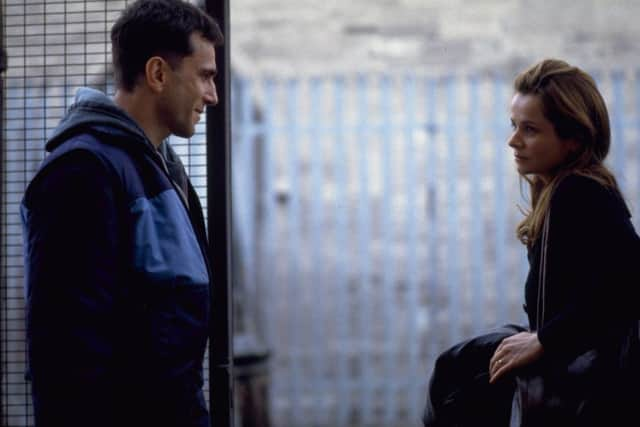

“She was a bit of a blank canvas for me and the hurdle I needed to get over was my Englishness. She’s from Belarus, probably the worst place on the planet to be in the first half of the 20th century, suffering the most appalling genocides and invasions from all directions. She would have been a young woman in the Second World War and grew up through the most horrific times and crimes against humanity, would have witnessed extraordinary things. So my feeling is that she’s very, very tough, very driven, and I play her as if this is the defining moment of her life, a calling she’s been waiting for. She steps into action.”
Shocking as Chernobyl was and still is, what’s even more sobering is the series’ reminder that it could have been even more cataclysmic in terms of the spread of radiation.
“Yes, there was no blueprint for this. It was totally unprecedented in human history, and if they hadn’t taken the action they took in the first few days, it could have been catastrophic for the planet in a way that was much, much worse. The first time I read the script I was nearly sick. What?! I had NO idea how close we came to that. It’s staggering.
“I hope it will have a very wide audience, young and old, and people will remember those who were there who died, and also see the incredible heroism that occurred. And because it’s HBO and it’s got that real feeling of disaster unfolding with Bruce Willis moments, I hope it’ll have a big audience.”
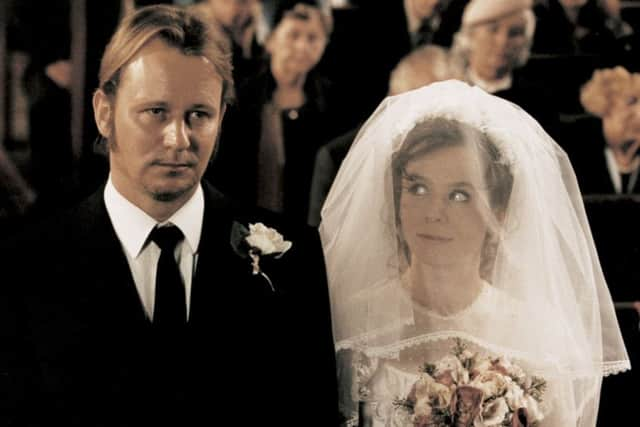

Preparing for the role, Watson found a book called Prayer for Chernobyl, a series of essays and testimonies that pinpointed for her a seachange in perception in northern Soviet Ukraine and beyond.
Advertisement
Hide Ad“The nature of evil had changed. They were no longer under attack from people, but from the ground, the air, the water, and in those terms, it’s an unprecedented event. Nothing had ever happened before like it.”
Or on such a far-reaching scale in geographical and historical terms, Watson continues.
Advertisement
Hide Ad“The known history of humanity is a handful of thousands of years, but this site will not be safe for 50,000 years. We created an event that will live longer than our known lifespan, which is pretty terrifying. The building over the former plant at the moment is safe for 100 years. How many generations are going to keep that up, with the world in the state of flux that it is?” she says.
So as well as being a shocking piece of drama, for Watson Chernobyl has a wider lesson for us all.
“The message in general is listen to the scientists and don’t ride roughshod over their warnings, because the consequences are dire. And that’s exactly what we’re doing at the moment. Scientists say we have 12 years to reverse and slow global warming otherwise we reach a point of no return. And hey-ho, what’s happening? It’s getting worse. Nobody’s doing anything, a lot of talk, no action,” she says.
Given her concerns it’s no surprise to hear she’s just returned from demonstrating over climate change in Central London with her children, Juliet (14) and Dylan (11) with husband John Waters, an actor turned potter. “Yeah, I took my kids along, there were lots of young people. And that’s all very well, good... but there’s nothing actually happening – we need action,” she says, frustrated and showing a steeliness belied by what she calls her “Englishness”.
Born in London in 1967, the daughter of an English teacher and an architect she was initially turned down for drama school and instead studied English Literature at Bristol University. A few years of waitressing and clerical work followed before acceptance at Drama Studios London. Launching her career with several years at the Royal Shakespeare Company, including an Olivier Award nomination for best actress, landing a role in Lars von Trier’s 1996 Breaking the Waves saw her nominated for an Oscar and a Golden Globe. Set in a religious community in Scotland, it‘s a challenging study on the nature of love, corporeal and spiritual, and involved sex scenes, violence and nudity for Watson.
Is it a film she would make again, were she able to go back in time?
Advertisement
Hide Ad“Sure. I mean obviously not now because I’m in my 50s! But oh yeah, it was a very powerful, transformative experience for me and I’m glad that it exists as a film. I think it’s challenging and that he always pushes the parameters of story and changes the landscape when he makes a movie. Most people are just running after the formula, and he’s not.”
The roots of Watson’s desire to be in a film that explores the dangers of dogma and blind faith, issues that arise again in Chernobyl, could possibly be traced back to her formative experiences at the St James Independent School in London. Run by the School of Economic Science, ostensibly along the principles of the Hindu philosophical system Advaita Vedanta, it was later the centre of allegations of physical mistreatment and cult mind control methods. What does she think of the suggestion that she was attracted to the film partly as a reaction to her own experiences?
Advertisement
Hide Ad“Yeah I had a strong sense of being in something with a spiritual intensity, of being in something like that then not being in it, and knowing how that feels, yeah.”
The Oscar nomination, a vindication of her choice of career, must have been satisfying too.
“I hadn’t seen myself as much of a… you know, successful person, and suddenly there I was,” she says. “It took a bit of getting used to,” she laughs.
As with Breaking the Waves, resistance to a dogmatic culture that has become oppressive whatever its original ideals, is territory that is also explored in Chernobyl and is something that chimed with Watson.
“Yes absolutely. I related very strongly to that; being within a system where you were supposed to think a certain way and you weren’t really allowed to think any other way. And breaking out of that is a very, very powerful release in your life.”
Three years after Breaking the Waves saw another Oscar nomination for Best Actress for Hilary and Jackie, and again for Angela’s Ashes in 1999, which brought her a US audience, consolidated by Robert Altman’s Gosford Park and the Hannibal Lecter series Red Dragon. She won praise for Paul Thomas Anderson’s Punch-Drunk Love, Jim Loach’s Oranges and Sunshine about the children sent to abusive care homes in Australia, playing Stephen Hawking’s mother-in-law in The Theory of Everything and Kingsman: The Golden Circle.
Advertisement
Hide AdWith an almost 30-year film and TV career, she likens nominating favourites to naming her best-loved child, but when pushed admits there are those that feel precious.
“Breaking the Waves, Hilary and Jackie, Punch-Drunk Love, Gosford Park, and I’ve done a few telly things that I really loved, like Apple Tree Yard, and Appropriate Adult, that was pretty special.”
Advertisement
Hide AdIt was another almost impossible to watch role, that of the trainee social worker appointed to safeguard the rights of serial killer Fred West under interrogation in the ITV dramatisation.
“Yes, it was hard. Worse for Dominic [West] and Monica [Dolan] who played West and his wife Rosemary. They really had to read material that… things you wish you didn’t know. My research was different because she came into that situation completely ignorant and it’s not the same, but even then, by the end, I was so glad to just get off the set, back to the family, and not have to think about that stuff any more.”
With an OBE for services to drama in 2015, Watson is also keen to champion humanitarian issues, particularly those around children. She worked on the NSPCC’s campaign for the first UK children’s commissioner, bringing us in line with much of the rest of Europe, and now works with the Citizens of the World Choir, composed of refugees, asylum seekers, migrants and friends, providing them with a safe space to express themselves through music.
“I’m one of their patrons and it’s going from strength to strength. We’ve written a song together,” she says proudly.
Not that Watson sings it.
“Oh no, I don’t sing. I get up and introduce people and talk. But THEY are amazing, from all over, Africa, Afghanistan, Syria, Iraq, and people from here, a 50/50 mix of refugees and migrants and friends. It’s like taking a bath in the opposite of hate. It’s absolutely beautiful.”
Now in her 50s, how does Watson see the industry in terms of roles for women beyond their twenties and thirties? Are there more, are they getting better?
Advertisement
Hide Ad“Difficult to say, because, generally when I get something it’s quite interesting, and I’m not sure whether that’s because I’m in my 50s, or because things are changing. The whole platform of long-form television has changed things and it’s a very big market with much more diversity of subject matter and different audiences. There’s more out there, and also women are in control of the buttons and are a slightly bigger share of the audience.”
But women have always been a slightly bigger share of the audience, why would that be making an impact now?
Advertisement
Hide Ad“Because there was this kind of formula – and a lot of this was about why men got paid more as well – that if a movie made a lot of money at the opening weekend, it was a success and people would back anything to do with it. So that meant there was a small handful of male actors, the Bruce Willises of this world, who dominated the market. But that’s really changed.”
And has it changed enough for Watson to be getting the same pay as the male leads?
“You know what? On this job, my lawyer said, ‘is she getting paid the same as the men?’ And they went ‘oh! … er... she is now.’ So it was really cool! And it was like ‘Oh my God, I didn’t realise how much that meant to me until it happened. I’d always just assumed that I would never be paid as much because that’s the way it was. Although I’m sure there are things I’ve done where I’ve been paid more than the men because I was the main character.”
With no romcom on the horizon as yet, we can expect to see Watson appearing in more of the challenging dramas that have made her name. However, in terms of what she calls “difficult stuff”, she will turn them down if she doesn’t think they’re good enough, or are gratuitous.
“Stuff around child abuse, you know a procedural drama with casual dropping of dead bodies and child abuse. I find that difficult to stomach. Quite often it’s just plot fodder and I find that tricky.”
Another reason for turning jobs down is pure pragmatism. “If it’s too far away or messes up the school holidays,” she adds, and laughs.
Advertisement
Hide Ad“It’s a very extreme thing to do to your family, acting, so I try and follow the good work and so far, touch wood, it keeps rolling on a frequent enough basis to keep us all in spaghetti. I had a long run of things back to back and decided to take a big break and be home. I’m SO lucky. At the moment I’m just seeing what way the wind blows. It’s a question of waiting for the right thing to come along. Or I run out of money and have to do something anyway!” She laughs, relaxed now about her career and her choices, but looking back what would she say to her younger self, the one that was rejected by drama school?
“Ooooh. Well, just believe in yourself and have patience. Don’t stress about it, it’s going to be OK.”
Emily Watson stars in Chernobyl on Sky Atlantic and NOW TV from 7 May.